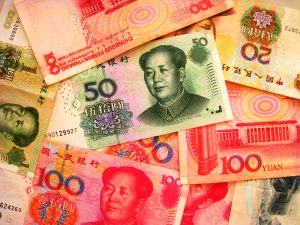Recent news noted that Credit Suisse Group is slowing its expansion in China, but this doesn’t mean that major foreign banks are pulling out or ending their China dream. Morgan Stanley, Citigroup, UBS, Goldman Sachs, and Deutsche Bank are among foreign banks continuing to build up investments in China.
Credit Suisse is delaying the launch of its locally incorporated bank to 2024; the launch would allow Credit Suisse to expand its wealth management bank. The firm’s management noted China’s slowing economy among COVID-19 lockdowns and the increase in regulation. Credit Suisse is also still waiting for an on-site inspection required by regulators before the firm can expand on the mainland.
China is a notoriously difficult place for foreign banks to successfully compete due to well-known local and entrenched banks that control most of the market share and are used as channels for government policy implementation. For a long time, foreign banks were limited by minimum asset thresholds and ownership requirements, and they remain constrained by capital accounts restrictions. For example, a 2021 regulation restricted global banks’ ability to raise money overseas and transfer it into China.
There remain signs that Beijing wants more control of its economy. Regulators warned foreign banks in 2022 not to pay their executives too generously. In addition, according to Bloomberg, China-U.S. tensions have played a major role in holding up licenses within the banking sector. This includes licenses sought by Morgan Stanley to expand on the mainland.
Foreign banks have faced higher funding costs compared to their local counterparts, due to challenges in obtaining low-cost deposits as major funding sources. Foreign banks have found themselves getting wholesale funding, then, from the interbank market at interbank rates, which are normally higher than deposit rates. Foreign banks have also tended to maintain a higher loan loss coverage ratio than domestic banks, since they have fewer outlets to dispose of nonperforming loans.
Despite all of this, foreign banks are hoping that regulatory tide has changed. With the introduction of the Shanghai Free Trade Zone at the end of November 2014, maximum deposit rates on foreign currency and renminbi exchange restrictions were lifted in this area, attracting 23 foreign banks at the time. After this period, in 2020, foreign banks were allowed to apply for full ownership of their partnerships, giving them more incentive to become active in China.
Some banks have continued to pursue partnerships, seeking better access to clients. Goldman Sachs partnered with ICBC in 2021 to better access potential investment clients. BlackRock set up a joint venture with local Chinese partners and also expanded its own wholly-owned business. JP Morgan took a 10 percent stake in China Merchants Bank’s wealth subsidiary.
Foreign banks continue to pursue business in foreign currency lending and trade financing as well as in investment banking business, including derivatives trade and asset management. However, they risk China’s regulatory changes that may place additional requirements on their core businesses. New regulation is often swiftly introduced and can aggressively curtail activities the Communist Party deems unstable, unequal, or otherwise unpalatable.
Foreign banks also have cause for concern over state intervention in the economy. The flurry of regulations implemented in 2020 and 2021 attested to Beijing’s power to crack down on what it considers unacceptable behavior, but equally disconcerting has been government influence on China’s equity markets through government guidance funds in favored industries. Government funds have raised over $900 billion in the past 10 years to provide early funding to companies in preferred high-tech industries.
These actions underscore the authority of the Chinese government in determining which industries will thrive and how they will be funded. Foreign banks want to grow on the mainland, but the question is whether they will remain in government favor, or whether the rift between China and the West, or China’s own political economic direction, will change their fortunes.

































